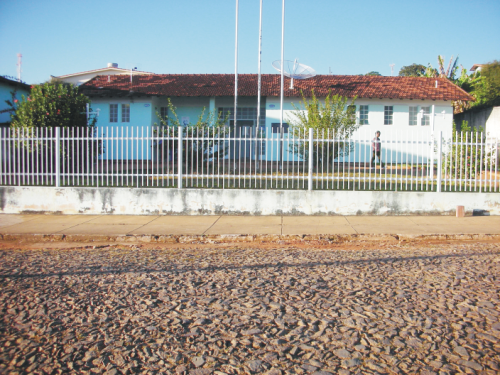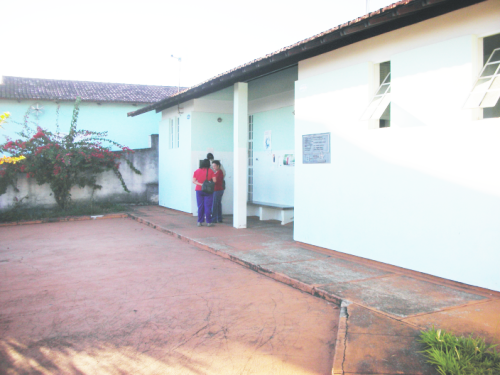
Free public neighborhood health clinic in Brazil
where treatment is provided to all
as fundamental right.
where treatment is provided to all
as fundamental right.
I am not convinced that single payer is necessary to dramatically improve health care in the US. I believe that making health care a right (like the right to vote) - a right that is not means tested - is what we really need.
This morning in Brazil, I went to a Government public health clinic in my neighborhood, made an appointment to meet with a doctor tomorrow morning for a consult and prescription, and I will be charged $0.00 (zero) for this service, because health care is a right in Brazil.
I showed proof of address (because people must go to the health clinics in their neighborhoods - the clinics that are closest to them) and I showed proof of my identity (incidentally as a foreign permanent resident). I also showed proof that I am up to date with my vaccinations, which are provided for free at the same clinic. Tomorrow when I get the prescription, the medications will be provided for free.
There's still one question that an American really wants to ask here: Where's the cash register? At these clinics, there are no credit card swipers, cash registers, and no calls to any insurance companies or Government bureaucrats to confirm whether the patient is covered for one service or all services.
At seven in the morning,
patients line up to schedule appointments
which may be from a day to a month away.
patients line up to schedule appointments
which may be from a day to a month away.
Crucially, there isn't even a check within Government records to confirm a patient's right to be served. Since Government-provided health care is a right for all that is not means-tested and is provided by the Government itself, there's no need to confirm people's insurance status. Health care is actually more of a right in Brazil than voting is a right in the United States, because there is no need in Brazil to show that you have "registered" to participate in the free services. And there is no crime a person can commit that would result in the loss of the the right to participate in the Government system.
The existence and operation of the free health clinics, hospitals and blood work laboratories is Brazilians' "insurance" that health care will be available to them. The government buys or manufactures medicines in bulk and provides them for free, either at this clinic or at the hospital downtown.
While waiting in line to schedule an appointment this morning, an elderly woman mentioned in passing that, in addition to having a home in this town, she also owns a summer cottage and land in the countryside. It doesn't matter here. Yet, if she said the same thing at a Medicaid office in the US, she would probably carried out by armed guards, tasered and/or arrested and charged with fraud.
And yet, even with the absolute guarantee that patients have a right to Government health care through this nationwide system of free clinics and hospitals regardless of income, assets or ability to pay, (some people sue the Government for failure to provide expensive care or new and expensive medicines for unusual conditions) there are still private insurance companies, doctors and hospitals for people who have conditions for which the state system isn't equipped to provide excellent and immediate care, and/or for people who want the "Cadillac" service that we really all should get wherever we are.
To make health care more affordable in the US, setting up a national system such as the one in Brazil, or in the Seattle / Puget Sound area, where all of the medical, nursing and administrative staff work for salary rather than as entrepreneurs, is the surest way to keep costs down. Along with doing away with the bureaucracy involved in means testing, charging individuals for insurance, making sure that they have paid, etc.
The crucial part is not that Government nationalize all medicine, but that Government set up a national system Government-owned clinics hospitals and pharmacies like the system Brazil has, or provide insurance to all Americans the way the French do, with patients accessing services from private providers and the Government paying for these services.

